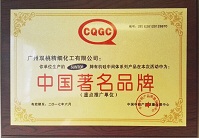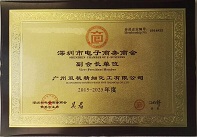
![]() E-mail: admin@gz-chemical.com
E-mail: admin@gz-chemical.com
Email us,best price and silane solutions for you!
Tel:+86 (20) 29035969

![]() E-mail: admin@gz-chemical.com
E-mail: admin@gz-chemical.com
Email us,best price and silane solutions for you!
Tel:+86 (20) 29035969


Glass for technologies like displays, tablets, laptops, smartphones, and solar cells need to
pass light through, but could benefit from a surface that repels water, dirt, oil, and other liquids.
Researchers from the University of Pittsburgh's Swanson School of Engineering have created
a nanostructure glass that takes inspiration from the wings of the glasswing butterfly to create
a new type of glass that is not only very clear across a wide variety of wavelengths and angles,
but is also antifogging.
The team recently published a paper detailing their findings: "Creating Glasswing-Butterfly
Inspired Durable Antifogging Omniphobic Supertransmissive, Superclear Nanostructured
Glass Through Bayesian Learning and Optimization" in Materials Horizons. They recently
presented this work at the ICML conference in the "Climate Change: How Can AI Help?"
workshop.
The nanostructured glass has random nanostructures, like the glasswing butterfly wing, that
are smaller than the wavelengths of visible light. This allows the glass to have a very high
transparency of 99.5% when the random nanostructures are on both sides of the glass. This
high transparency can reduce the brightness and power demands on displays that could, for
example, extend battery life. The glass is antireflective across higher angles, improving
viewing angles. The glass also has low haze, less than 0.1%, which results in very clear
images and text.
"The glass is superomniphobic, meaning it repels a wide variety of liquids such as orange
juice, coffee, water, blood, and milk," explains Sajad Haghanifar, lead author of the paper
and doctoral candidate in industrial engineering at Pitt. "The glass is also anti-fogging, as
water condensation tends to easily roll off the surface, and the view through the glass rem
ains unobstructed. Finally, the nanostructured glass is durable from abrasion due to its self-
healing properties—abrading the surface with a rough sponge damages the coating, but
heating it restores it to its original function."
Guangzhou Double Peach Fine Chemical Co.,Ltd
Address: No 3401 Huangpu East Road, Huangpu District, Guangzhou, China
Tel:+86 (20) 29035969 Fax:+86(20)29035979
Tel/Wechat/Whatsapp:0086 13826126978 admin@gz-chemical.com